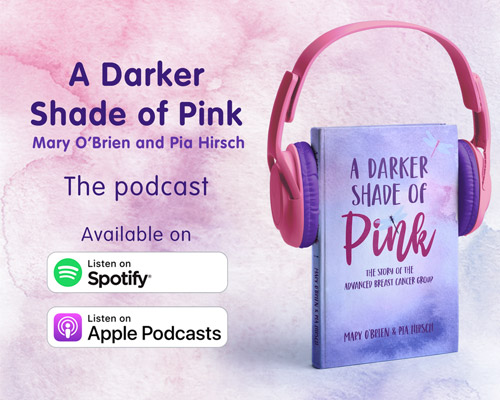Women who come to our group feel, that they are the forgotten faces of breast cancer. They are the ones whose cancer has come back or has already spread by the time it is diagnosed. They are not ‘survivors’ who can put their cancer behind them and get on with their lives. They are women who have to live with the knowledge that sooner or later they will die of their disease.
Every progression of the disease is a traumatic event, every round of scans a source of great anxiety and their ongoing treatments often have horrible debilitating side-effects.
They come to the group because they want to talk to other women who are also walking this path. They want to know how other women manage – how they manage the treatment and the side-effects, how they manage the fear and the uncertainty, how they talk with their families. They gain courage and inspiration from one another to continue to do the most ordinary and simple things, to live ordinary lives and to care for their families, in the face of this illness.
We believe that the benefit they gain from making connections with others, with others who understand, who will listen to what they have to say and who don’t tell them to “just be positive and you will beat this”, is nourishing and sustaining, and helps them to face the fact of their death with less fear, with greater calm, with the knowledge that they are remembered, and with the comfort that they are not alone.
We each walk through life towards death in our own way. What we try to offer in this group is the opportunity for each woman to think about what her life and her death is for her, what she wants her particular walk to look like, and how to accomplish that. The women in our group are brave and feisty, who in the midst of this illness that leads to what is still a certain death, show that by connecting with others in a variety of ways, life can be embraced and relished, and that new, creative and growing experiences can come.
What these women desperately need is ongoing, expert, professional psychosocial support to find ways to live meaningful lives in the face of this frightening and debilitating illness. This is precisely what our service provides through, among other things, a weekly professionally led group that we deliver by telephone as well as in person, enabling rural (and very sick) women to access support that would otherwise not be available to them.
Mary O’Brien and Pia Hirsch, Group Facilitators and Service Coordinators
Finances
Keep a spreadsheet of all costs. Include service dates, invoice numbers etc. Ring Centrelink and make an appointment to find out what benefits you are entitled to, e.g. disability support pension, carer’s allowance, carer’s payment. Ring your superannuation board and discuss whether you are entitled to a payout, and what may be involved in accessing your money.

